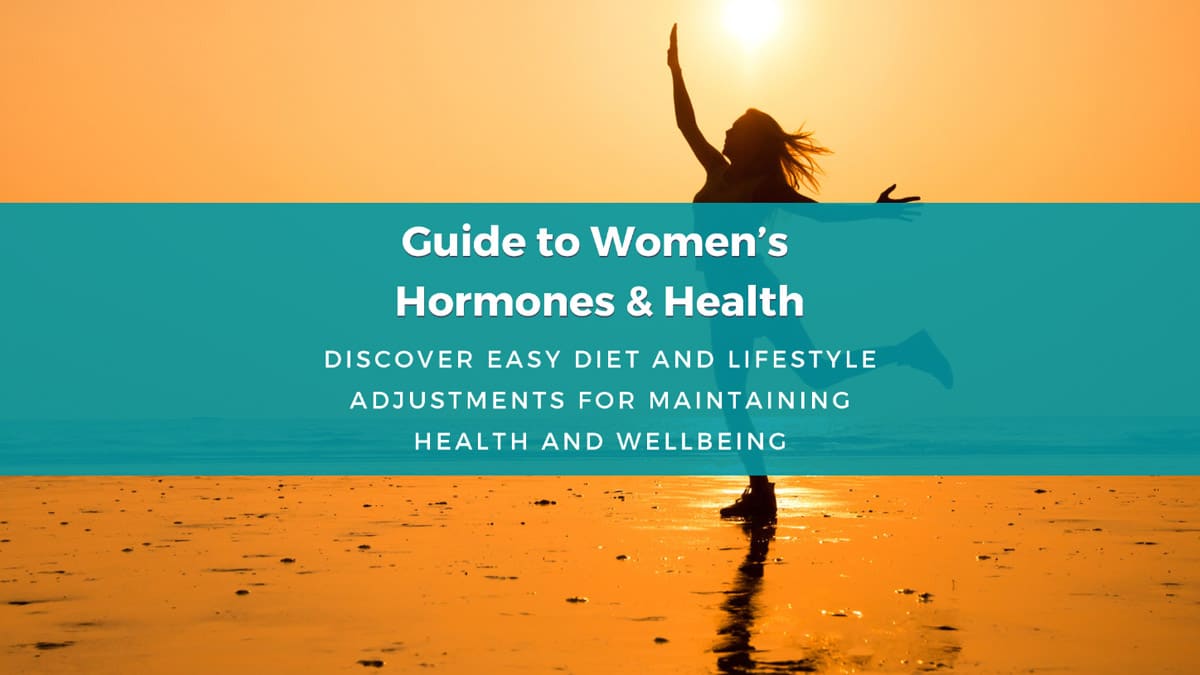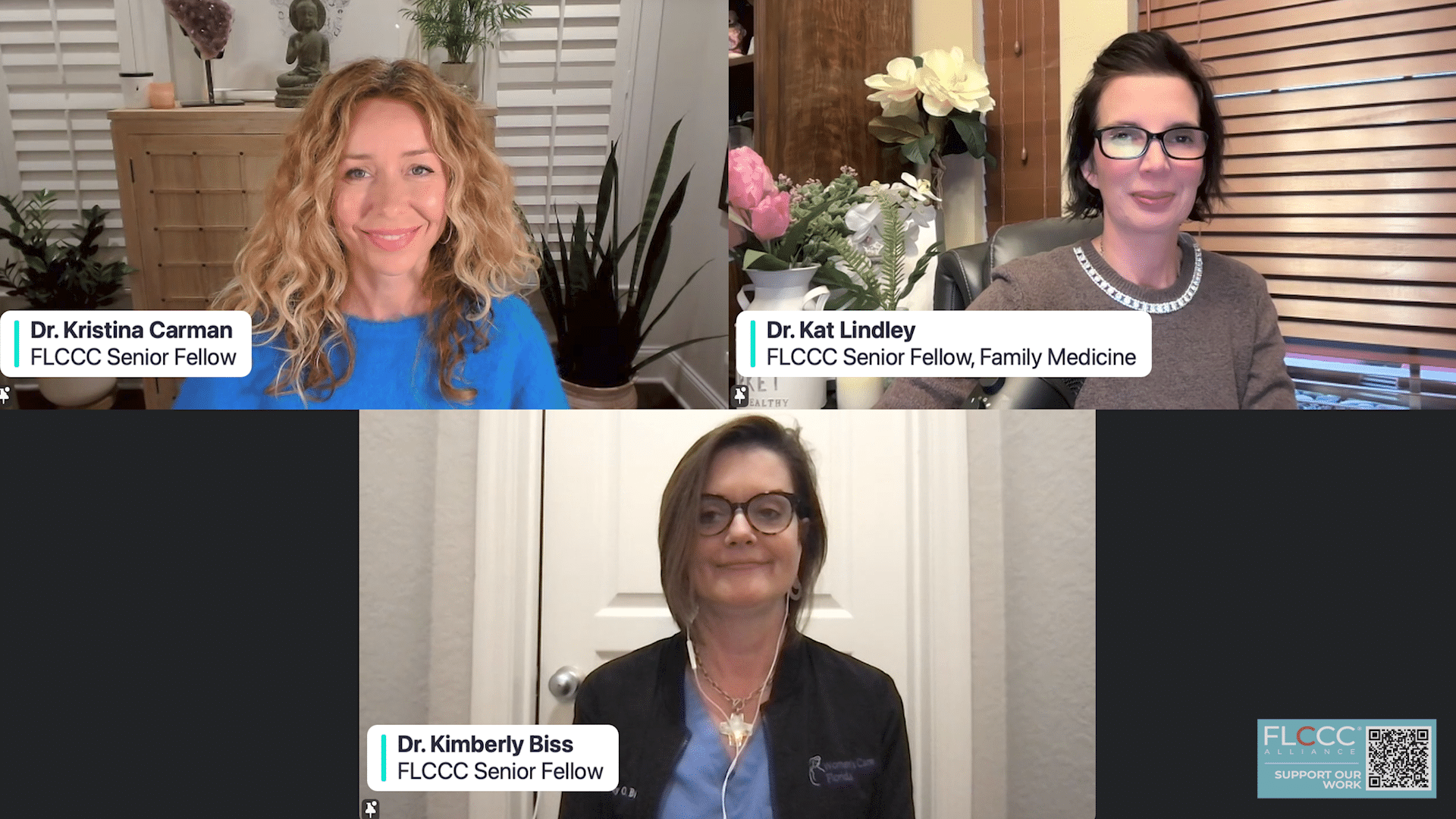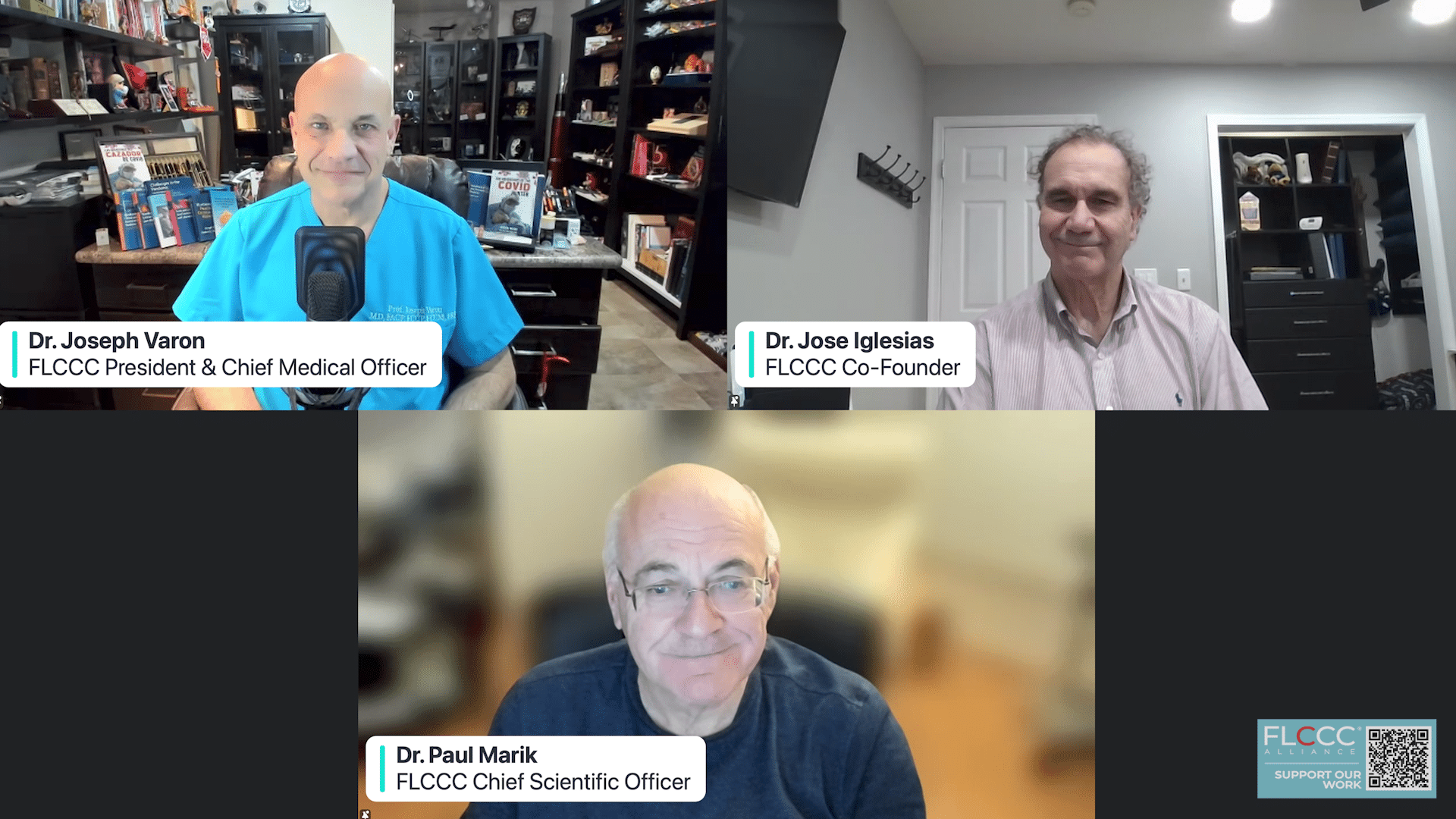'Women's Health Part 2: What Women Over 40 Need to Know'
— FLCCC Alliance (@Honest_Medicine) January 9, 2025
This week's webinar featured FLCCC Senior Fellows Dr. Kat Lindley (@KLVeritas), Dr. @kristina_carman, and Dr. Kim Biss (@docbiss) for an important discussion on a range of topics regarding Women's Health for those over 40.… pic.twitter.com/U5bqfhO9of
Speakers: Dr. Kat Lindley, Dr. Kimberly Biss, Dr. Kristina Carman
When it comes to women’s health after 40, there is so much to learn and so little time to discuss it. In the United States, the average appointment with an OB/GYN lasts just 15 to 30 minutes. But what if you had an hour with three experts, each approaching women’s health from a different medical discipline? That’s exactly what this webinar provides.
“This phase of life is actually pretty remarkable and wonderful,” says Dr. Kristina Carman, a naturopathic doctor and hormone expert. “I think, in many ways, we almost need to reframe the way we look at it.”
If you’re a woman in your 40s, you’ve likely heard about menopause, breast cancer screenings, and bone health, but it can all feel overwhelming. HPV, hypertension, mammograms, and pap smears—the list goes on. One thing is for sure: change is on the horizon. This webinar helps you embrace this phase of life, not just survive it.
Don’t hesitate! Watch the webinar or read this summary to learn how to navigate perimenopause, optimize menopause, and improve overall health during your 40s and beyond. Here’s a snapshot of the topics covered:
- Hormone Fluctuations Leading Up to Menopause
- How Women Can Handle Perimenopause
- How to Optimize Menopause
- Hormone Replacement Therapy (HRT and BHRT)
- Key Nutrients for Women Over 40
- The Importance of Gut Health in Women’s Health
- Hormones 101: Testing & Production
This webinar is the 2nd in a series on Women’s Health. You can find Part 1 here: The Future of Women’s Health
Speaker Highlights
Dr. Katarina Lindley
Dr. Lindley brings her expertise in family medicine and preventive care to this discussion. As an FLCCC Senior Fellow, she emphasizes the importance of proactive health management. Follow her on X or visit Lindley Medical to learn more.
Dr. Kimberly Biss
Dr. Biss, an obstetrician-gynecologist and FLCCC Senior Fellow, specializes in women’s health across all life stages. Her focus on holistic and individualized care offers practical solutions for navigating menopause. Follow her on X.
Dr. Kristina Carman
Dr. Carman, a naturopathic doctor, blends nutritional and holistic approaches to women’s health. A key contributor to FLCCC’s Women’s Health Handbook, she aims to empower women during their 40s and beyond. Follow her on X or explore Tiny Fish Co.
Hormone Fluctuations Leading Up to Menopause
Most women think menopause starts in their 50s. However, this life stage begins with perimenopause, a gradual transition marked by hormonal shifts.
“As a woman approaches the twilight of her reproductive years, her body undergoes a profound shift, tapering the production of estrogen and progesterone,” explains Dr. Kristina Carman. “This hormonal transformation often manifests in an array of physical and psychological experiences, presenting a unique chapter in the life cycle.”
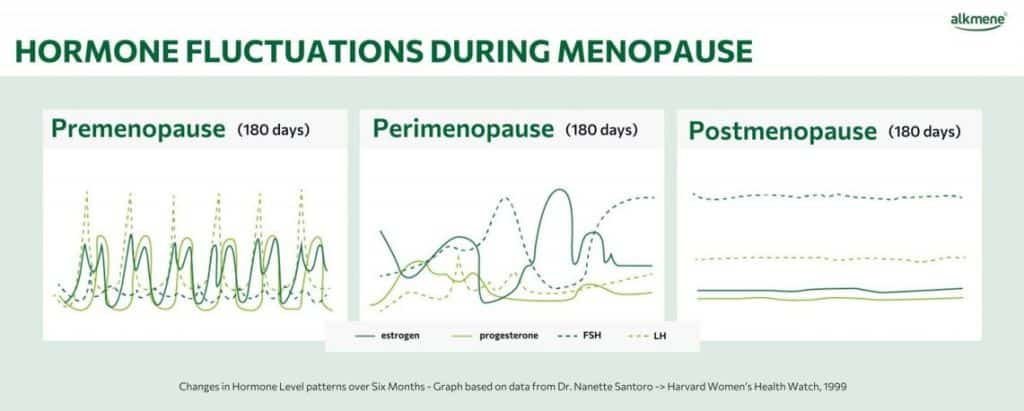
Key insights from the webinar:
- Common symptoms: Irregular periods, hot flashes, mood swings, and sleep disturbances.
- Hormonal changes: Declining estrogen and progesterone levels can affect metabolism, bone density, and heart health.
- Actionable tips: Regular screenings, maintaining a healthy weight, and understanding hormone levels can help manage this transition.
For more on balancing hormones, check out FLCCC’s Women’s Hormone Health Guide.
How Women Can Handle Perimenopause
Perimenopause is often misunderstood as the beginning of the end. Dr. Carman reframes this phase as an “enchantress phase,” where women can embrace new experiences and opportunities. With all the health tips provided in this webinar, your enchantress phase could end up taking the cake!
Nutrition
- Phytoestrogens: Found in soy, flaxseeds, and chickpeas, these plant-based compounds help balance estrogen levels.
- Calcium and Vitamin D: Essential to counter declining bone density; include dairy or fortified plant-based alternatives.
- Anti-inflammatory foods: Incorporate fatty fish, berries, and leafy greens.
Sleep and Movement
- Sleep: Reduced estrogen often leads to insomnia. Maintain a cool, dark room and establish consistent routines.
- Exercise: Strength training helps preserve muscle mass and bone density, while yoga and Pilates improve flexibility and stress management.
Key Nutrients
- Magnesium Glycinate: Improves sleep and mood.
- Omega-3 Fatty Acids: Reduce inflammation and support heart health.
- Adaptogens: Herbs like ashwagandha help regulate stress.
Slides from the webinar highlighted additional dietary strategies to manage symptoms and included a case study demonstrating the benefits of combining nutritional therapy with regular exercise.
For more on managing perimenopause, see FLCCC’s Nutrition Guide for Perimenopause and Menopause.
How to Optimize Menopause
Menopause marks the end of menstruation, but it doesn’t have to signal a decline in quality of life. With the right approach, this can be a fulfilling and vibrant stage of life.
Nutrition
- Protein: Supports muscle mass and metabolism. Include lean meats, legumes, tofu, and protein powders.
- Calcium and Vitamin D: Found in dairy, leafy greens, and fortified alternatives, these nutrients strengthen bones.
- Healthy fats: Avocados, nuts, and olive oil boost hormone production and heart health.
- Phytoestrogens: Found in soy and flaxseeds, these compounds may alleviate hot flashes.
Sleep and Movement
- Sleep: Address insomnia and night sweats with a cool room, mindfulness practices, and consistent routines.
- Exercise:
- Weight-bearing activities: Strength training and resistance exercises prevent osteoporosis.
- Aerobic exercises: Walking, cycling, or swimming improve heart health and stamina.
- Stress relief: Yoga or tai chi enhances flexibility and supports mental well-being.
Key Nutrients
- Magnesium Glycinate: Supports relaxation and reduces muscle tension.
- Black Cohosh: May alleviate hot flashes and night sweats.
- Collagen Peptides: Enhance skin elasticity and support joint health.
Slides from Dr. Kimberly Biss’ presentation highlighted clinical data showing improved outcomes for women who adopt a holistic approach to menopause management, including lifestyle changes and medical interventions where necessary.
Check out FLCCC’s Menstrual Health Guide for additional resources.
Hormone Replacement Therapy (HRT and BHRT)
“Taking ownership over our own health means listening to our bodies and recognizing that we all have individual differences—our genetic makeup, lifestyles, and budgets are different.” – Dr. Kristina Carman
When it comes to Hormone Replacement Therapy (HRT) and Bioidentical Hormone Replacement Therapy (BHRT), Dr. Carman says it’s a personal decision. Make no mistake, emerging research shows that these therapies can help women manage severe symptoms of menopause and perimenopause by replenishing hormone levels.
Key Points from Dr. Carman’s Slides:
- HRT: Uses synthetic hormones to treat symptoms like hot flashes, vaginal dryness, and bone loss.
- BHRT: Uses hormones identical to those produced by the body, offering a more natural alternative.
- Risks and Benefits: Dr. Carman emphasized individualized care, discussing the importance of working with healthcare providers to weigh the benefits and potential risks.
HRT and BHRT can provide significant relief but should always be tailored to individual health needs.
Key Nutrients for Women Over 40
Nutrition plays a pivotal role in maintaining health during this phase of life. Dr. Carman’s slides highlighted the following essential nutrients:
- Protein: Preserves muscle mass and supports metabolism.
- Calcium and Vitamin D: Strengthens bones and prevents osteoporosis.
- Magnesium Glycinate: Improves sleep and mood regulation.
- Omega-3 Fatty Acids: Supports heart and joint health.
- Collagen Peptides: Enhances skin elasticity and bone density.
Incorporating these nutrients through whole foods and supplements can significantly improve overall health. Check out FLCCC’s Nutrition Guide for Perimenopause and Menopause.
The Importance of the Gut in Women’s Health
Gut health is foundational to overall well-being, influencing hormone regulation, immunity, and mental health.
Insights from Dr. Carman’s Slides:
- Probiotic-Rich Foods: Yogurt, kefir, and fermented vegetables promote a healthy gut microbiome.
- Fiber: Supports digestion and balances hormones. Include fruits, vegetables, and whole grains.
- Hydration: Essential for maintaining digestive health and overall bodily functions.
A balanced gut can significantly reduce inflammation, improve digestion, and enhance overall well-being. Learn more about the connection between the gut and health, for blood sugar and even for sleep!
Hormones 101: Hormone Testing & Hormone Production
Understanding your hormone levels is key to navigating perimenopause and menopause effectively. Dr. Carman’s slides outlined the different testing options available:
- Serum Testing: Provides a snapshot of hormone levels at a specific moment in time and can also assess other health markers like vitamin D, lipids, and glucose.
- Dutch Test: Offers a comprehensive view by analyzing hormone metabolites through dried urine samples. It’s particularly helpful for understanding cortisol levels and estrogen metabolism.
- Saliva Testing: Measures free hormone levels and is useful for tracking diurnal cortisol patterns.
Dr. Carman emphasized the importance of personalized testing plans, advising women to work closely with healthcare providers to determine the most appropriate method for their needs. For more details, explore FLCCC’s Women’s Hormone Health Guide.
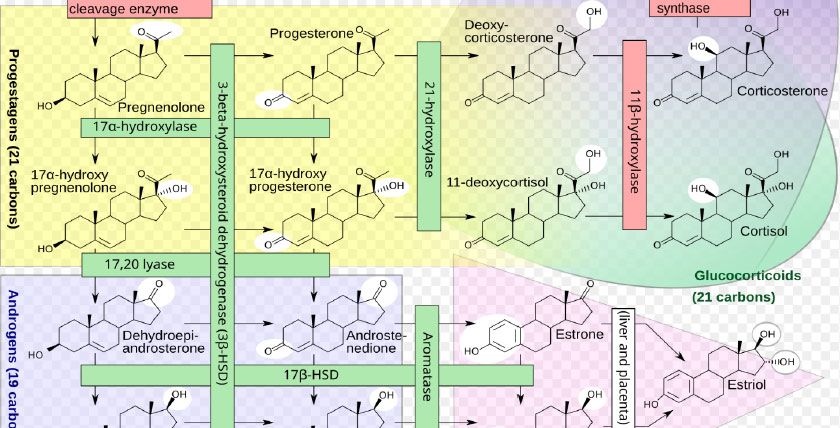
Hormone Production 101
“All our hormones come from cholesterol, and for 50 years now, based on bad science, doctors have been trying to lower everybody’s cholesterol.” – Dr. Kim Biss
As Dr. Biss made clear in the webinar, all hormones originate from cholesterol, which underscores the importance of maintaining balanced cholesterol levels. Generations of women were misled to replace butter and tallow with margarine, a shift that likely contributed to avoidable hormone imbalances driven by the low-fat myth.
Here are some key hormones you want your body to be regulating:
- Estrogen and Progesterone: Crucial for reproductive health and overall well-being.
- Testosterone: Often overlooked in women’s health but essential for maintaining muscle mass and libido.
- Cortisol: Regulates stress response but can disrupt hormone balance when chronically elevated.
Dr. Biss highlighted that hormonal imbalances often manifest in subtle ways, such as weight gain, fatigue, and mood swings. Addressing these imbalances early can prevent long-term health issues.
Here’s to Health in Your 40s!
“Quality of life is key. Women are living many decades beyond their reproductive years, and we need to support them through this phase of life.” – Dr. Kim Biss
Navigating women’s health after 40 can feel overwhelming, but with the right information and tools, this phase of life can be empowering and transformative. From understanding hormonal fluctuations to adopting tailored nutrition, exercise, and hormone therapy strategies, there are numerous ways to optimize your health and well-being. As Dr. Kristina Carman reminds us, this is a time to embrace your “enchantress phase” and focus on cultivating creativity, experiences, and a renewed sense of self.
Whether you’re addressing perimenopause, managing menopause, or looking to improve your overall health, the guidance from experts like Dr. Lindley, Dr. Biss, and Dr. Carman provides invaluable insights. Take control of your health journey by implementing these strategies and seeking support from trusted healthcare providers. Remember, this phase isn’t the end—it’s the beginning of a vibrant new chapter.
Stick with FLCCC on your health journey – we’re dedicated to women’s health and many other domains of healthcare. If you’re looking for more info about hormones and health for women right now, here’s another post written by Dr. Carman: Redefining Women’s Health and Wellness


